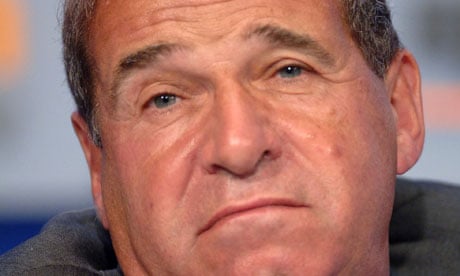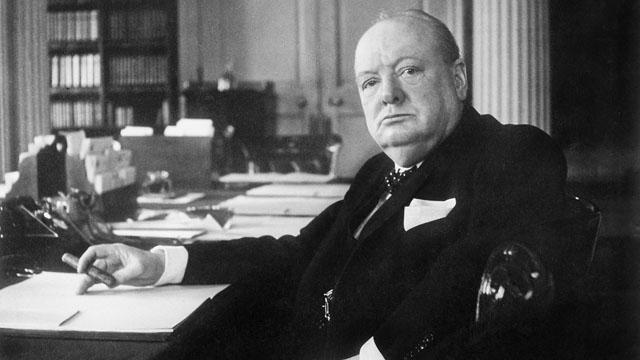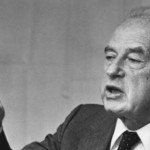1966: 117 die in Air India tragedy

Up to 117 people have been killed after an Air India Boeing 707 crashed near the summit of Mont Blanc in the Alps.
The plane was on a regular Bombay to New York flight when the accident happened at around 0800 local time.
All 106 passengers and 11 crew were killed on the aircraft as it prepared to land at Geneva airport in Switzerland.
One of the victims included chairman of the Indian Atomic Energy Commission Dr Homi Jehangir Bhabha, who was on his way to Vienna.
The remaining passengers were Indian nationals, 46 of whom were sailors. Six were British.
Disaster scene
Rescue teams found wreckage scattered on the south-west side of the mountain, about 1,400ft (427 metres) below the summit.
Gerard Devoussoux, a mountain guide who was one of the first to arrive at the disaster scene, said: “Another 15 metres (50ft) and the plane would have missed the rock. It made a huge crater in the mountain.
“Everything was completely pulverised. Nothing was identifiable except for a few letters and packets.”
French authorities radioed back the news that there was virtually no hope of survivors shortly after landing in the area.
The search was eventually called off after bad weather and poor visibility hampered rescue efforts.
Relatives of the passengers involved in the disaster were in tears after airport officials broke the news of the crash.
Robert Bruce, from Tooting, who was waiting for his parents to arrive, said: “I am so choked I cannot even cry. I will just go home and collapse.
“As far as I am concerned my world has come to an end.”
The cause of the crash is not yet known and it is expected to take several days before all of the bodies are recovered.
The plane was a few minutes behind schedule as it was preparing to make its descent.
But the captain of the Air India Boeing 707, who was one of the airline’s most experienced pilots, had radioed the control tower a few minutes earlier to report that his instruments were working fine and the aircraft was flying at 19,000ft (5,791 metres) – at least 3,000ft (514 metres) higher than the Mont Blanc summit.
Shortly after, the plane crashed into the mountain.
Sixteen years ago an Air India Constellation flying from Cairo to Geneva crashed near the same spot, killing 48 passengers and crew .
1986: Leon Brittan quits over Westland


Trade and Industry Secretary Leon Brittan has become the second cabinet minister to resign over the Westland affair.
Two weeks ago, Defence Secretary Michael Heseltine walked out of his cabinet post claiming his views on the future of the helicopter company were being ignored.
Yesterday, Prime Minister Margaret Thatcher, revealed in a Commons statement that Mr Brittan had authorised the leaking of a letter which was critical of Mr Heseltine.
The letter, from the Solicitor General, accused Mr Heseltine of “material inaccuracies” in his campaign for a European consortium rescue package for Westland.
The prime minister and the rest of the Cabinet have been backing a deal with an American firm, Sikorsky Fiat.
Calls for Mr Brittan to go have been mounting. Last night, he faced them from his own party, at a meeting of the influential Conservative backbench 1922 Committee.
This afternoon, Mr Brittan went to see Mrs Thatcher and offer his resignation. He left Westminster stony-faced and went straight to Kings Cross to catch a train to his Richmond constituency.
Resignation
He said nothing to reporters gathered at the station – the news of his resignation was announced only after the train had left.
Mr Brittan spoke to journalists on arrival in York.
He said: “I think that any minister must have, if he is to work effectively, the full confidence of his colleagues. This morning I made inquiries and I felt that I did not have that confidence and I therefore asked to see the prime minister to tender my resignation.”
In a statement, Mrs Thatcher said she had tried to persuade Mr Brittan to stay in the Cabinet. She hoped it would not be long before he returned to high office to continue his ministerial career.
Labour leader Neil Kinnock said: “Mrs Thatcher has got a lot of answering to do to questions that she has dodged or avoided or ignored in the past several weeks.”
1965: Winston Churchill dies

Sir Winston Churchill has died at the age of 90 with his wife Lady Clementine Churchill and other members of the family at his bedside.
He suffered a stroke 15 days ago and gradually slipped into a deep sleep from which he never awakened.
Sir Winston died in his London home at Hyde Park Gate.
Earlier in his illness, there had been crowds anxiously waiting for news at the top of the quiet Kensington cul-de-sac – but when the announcement finally came there was only a handful of journalists in the street.
Mourning crowds
News of his death was announced on the BBC shortly after 0800 GMT. Within half-an-hour, crowds began to gather near his home to pay homage to Britain’s greatest wartime leader.
When Sir Winston fell ill, he was visited by one of the country’s leading neurologists, Lord Brain, who advised on his treatment.
Since then, regular medical bulletins have been issued by Sir Winston’s own doctor, Lord Moran.
Sir Winston has spent the past few days lying in the downstairs room he converted to a bedroom after a fall four years ago in which he injured his back.
Members of the family were summoned to his bedside at 0700 GMT. Lady Churchill and the couple’s eldest surviving daughter, Mary Soames, have been with him throughout his illness.
Their son, Randolph Churchill was seen arriving with his son, Winston. Soon after, Sir Winston’s actress daughter, Lady Sarah Audley, looking pale and drawn, arrived with her daughter, Celia Sandys.
Many television and radio programmes have been cancelled or re-scheduled to make way for tributes to Sir Winston.
Sir Winston will lie in state in Westminster Hall – an honour not accorded any English statesman since Gladstone in 1898. His body will remain there for three days, before the funeral at St Paul’s cathedral on Saturday.
1969: LSE closes over student clashes
The London School of Economics has been closed following violent protests by students angry at the installation of steel security gates.
Police were called in to try to break up the demonstrators who broke through seven sets of steel protective gates put up last week at the university in the Aldwych, central London.
The gates had been attacked with crowbars, pickaxes and sledgehammers.
Officers arrested 25 students who were taken to Bow Street police station.
A crowd of student protesters followed, marching in a column, nine abreast, calling for the release of their colleagues.
The installation of the gates was regarded as highly provocative by the students – and some members of the academic staff.
‘Concentration camp’ gates
They resemble the iron grilles fitted outside jewellers’ shops and students claim they made the school look like a concentration camp.
LSE director Dr Walter Adams, whose appointment two years ago sparked off a series of student sit-ins, said the gates were put up to allow certain parts of the building to be closed off during protests – and allow others, such as the union premises, to remain open.
Students and staff held a meeting during the day to discuss the removal of the gates – but the student union president, Francis Keohane, lost a motion that removal should be by negotiation.
Within half an hour the gates were down. The union president, and treasurer Roger Mountford, announced their resignations saying they could not defend the law-breaking action.
The damage to the security gates is the latest in a long line of confrontations with the authorities which began in 1966 when students protested at the appointment of Dr Adams, then principal of the University College of Rhodesia.
The students claimed Dr Adams had not shown sufficient resistance to the regime of Ian Smith.
1989 : The serial killer Ted Bundy was electrocuted for murdering a 12-year-old girl.

Ted Bundy was born November 24, 1946, in Burlington, Vermont. In the 1970s, he raped and murdered young women in several states. He was connected to at least 36 murders, but some thought he had committed one hundred or more. He was executed in Florida’s electric chair in 1989. His charm and intelligence made him something of a celebrity during his trial, and his case inspired many novels and films about serial killers.
Early Years
Theodore “Ted” Bundy started life as his mother’s secret shame. Eleanor Cowell was twenty-two years old and unmarried when she had her son Theodore, which scandalized her deeply religious parents. She delivered the child at a home for unwed mothers in Vermont and later brought her son to her parents in Philadelphia. To hide the fact he was an illegitimate child, Bundy was raised as the adopted son of his grandparents and was told that his mother was his sister. Eleanor moved with Ted to Tacoma, Washington, a few years later. In 1951, she married Johnnie Bundy and the couple had several children together. From all appearances, Bundy grew up in a content, working-class family.
Bundy showed an unusual interest in the macabre at an early age. Around the age of 3, he became fascinated by knives. Bundy was a shy, but bright child who did well in school, but not with his peers. As a teenager, a darker side of his character started to emerge. Bundy liked to peer in other people’s windows and thought nothing of stealing things he wanted from other people.
An Unexpected Killer
While a student at the University of Washington, Bundy fell in love with a wealthy, pretty young woman from California. She had everything that he wanted: money, class, and influence. He was devastated by their breakup. Many of his later victims resembled his college girlfriend—attractive students with long, dark hair. His killings also usually followed a gruesome pattern. He often raped his victims before beating them to death.
The exact number of women Bundy killed will never been known. There is also some debate when he started killing, but most sources say that he began his murderous rampage around 1974. By this time, he had transformed himself, becoming more outwardly confident and active in social and political matters. He had graduated from University of Washington with a degree in psychology in 1972 and had been accepted to law school in Utah. Bundy even got a letter of recommendation from the Republican governor of Washington after working on his campaign.
Around this time, many women in the Seattle area and in nearby Oregon went missing. And stories circulated about some of the victims last being seen in the company of a young, dark-haired man known as “Ted.” He often lured his victims into his car by pretending to be injured and asking for their help. Their kindness proved to be a fatal mistake.
Bundy moved to Utah in the fall of 1974 to attend law school, and women began disappearing there as well. The following year, he was pulled over by the police. A search of his vehicle uncovered a cache of burglary tools—a crowbar, a face mask, rope and handcuffs. He was arrested for possession of these tools and the police began to link him to much more sinister crimes.
In 1975, Bundy was arrested in the kidnapping of Carol DaRonch, one of the few women to escape his clutches. He was convicted and received a one-to-fifteen-year jail sentence in that case. Two years later, Bundy was indicted on murder charges for the death of a young Colorado woman. He decided to act as his own lawyer in this case. During a trip to the courthouse library, Bundy jumped out a window and made his first escape. He was captured eight days later.
U.S. 1929 U.S.A. Lindberg 24th January, 1929 : Colonial Charles Lindberg had planned to leave on a 3,500-mile flight from Detroit, Michigan. He planned to travel all the way to Cape Horn, which is the southernmost tip of the continent of South America. He would then return to the East Coast.
U.S. 1935 U.S.A. First Canned Beer Sold Jan. 24th, 1935 : The first canned beer goes on sale “Krueger Cream Ale,” sold by Krueger Brewing Co. of Richmond, Va.to the general public. Pabst was the second brewer in the same year to sell beer in cans and the cans came with a picture of a can opener on the side, with opening instructions.
Chili 1939 Chile Earthquake Jan. 24th, 1939 : 30,000 people are killed by a magnitude 8.3 devastating earthquake in Chillán , Chile.
U.S. 1956 U.S.A. Look Magazine Jan. 24th, 1956 : Two white men from Mississippi known as J.W. Milam and Roy Bryant admitted to the murder of Emmett Louis Till, A Chicago teen African-American native. A very detailed account of their confessions was printed in Look magazine, for which they were compensated.
The Pleas made by the three American mothers was presented by the Health Minister of Red China and Red Cross president (Mrs. Li The Chaun). The mothers known by the names of Ruth Redman, Jessie Fecleau, and Mary Downy, were soon to return to their respected homes (back to the United States from their visit to Red China).
An outcome was hoped for as soon as possible. Unfortunately, as of this date it had not come yet. The sons were thrown in prison for 20 years to life sentence on charges of spying.
Mexico 1961 Mexico Marilyn Monroe Jan. 24th, 1961 : The divorce of Marilyn Monroe to playwright Arthur Miller is granted in Mexico, where a judge signed the decree. The grounds of divorce were listed as “incompatibility”. This was her third divorce 1st from childhood sweetheart Jimmy Dougherty, 2nd from legendary Baseball Star Joe DiMaggio.
U.S. 1968 U.S.A. Mayor Jan. 24th, 1968 : The role of the office of mayor has changed over the years. This change was noted in a feature printed in a local Oklahoma newspaper. It’s not to take away from the importance of a mayor in years past-who was always their on the public scene, smiling, waving, and mingling.
The above-mentioned responsibilities were quite important. However, in more recent years mayors of cities also acted as an economist, mediator, and architect. Mayors become officers who have engaged themselves in very important decisions over the years.
UN 1972 U.S.A. UN needs Money Jan. 24th, 1972 : As reported in a newspaper dated of this day and year, Nixon appeared to be cool towards efforts to raise money for the United Nations (UN), which was in debt at this time. At first, it did not seem this way, as Kurt Weldheim had told reporters that the government was responding positively to UN fundraising efforts.
The majority of the debt created by the United Nations at this time was a result of countries such as France, the Soviet Union, and several Eastern European countries failing to adhere to peace agreements.
Guam 1972 Guam 28 years later Jan. 24th, 1972 : 28 years after the war ended local farmers found a Japanese sergeant who was unaware that World War II had ended, he had survived in the Jungle carving tools and hunting for all those years waiting for orders from the Japanese Army
U.S. 1980 U.S.A. US Sells to China Jan. 24th, 1980 : In reaction to the Soviet Invasion of Afghanistan, the United States had announced plans to sell military equipment to China. The sale of this equipment would not include the purchase of weapons.
U.S. 1994 U.S.A. AT&T 24th January, 1994 : One United States telecommunications company had let go of over 16,000 employees as of this year. This was in effort to cut rising costs upon the deregulation of telephone communication services.
U.S. 1995 U.S.A. O.J. Simpson Jan. 24th, 1995 : The trial started of O.J. Simpson for the murder of Nicole Brown Simpson and her friend Ronald Goldman
U.S. 2003 U.S.A. Homeland Security Jan. 24th, 2003 : United States Department of Homeland Security officially began operating
France 2008 France Rogue Trader Jan. 24th, 2008 : A rogue trader ( Mr Kerviel ) at “Societe Generale” has lost over 7 billion dollars , to put this in context the rougue trader ( Nick Leeson ) who was at the centre of collapse at Barings Bank in England in 1995 lost in the order of $1.28 billion dollars. Societe Generale, one of France’s largest banks, has arranged a rights issue worth 5.5bn euros in new capital in order to offset the losses, but has stated it would still show a profit balance for 2007.
Russia 2011 Russia Suicide Bombing at Russian Airport Jan. 24th, 2011 : An explosion caused by a suicide bomber at the Domodedovo Airport in Moscow kills over thirty people and injures over one-hundred people.
United States
2013 United States US Ends Ban on Women in Combat
24th January, 2014 : Four former army officers that had been in service during Augusto Pinochet’s government were arrested after being accused of poisoning prisoners during that era. They were accused of the murder of two prisoners and attempting to murder five others.









